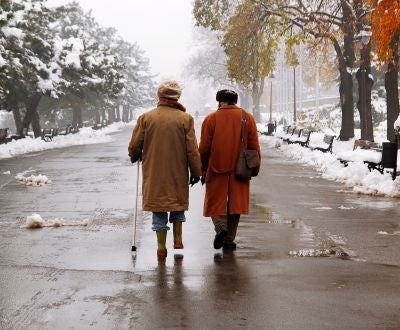Your support helps us to tell the story
From reproductive rights to climate change to Big Tech, The Independent is on the ground when the story is developing. Whether it's investigating the financials of Elon Musk's pro-Trump PAC or producing our latest documentary, 'The A Word', which shines a light on the American women fighting for reproductive rights, we know how important it is to parse out the facts from the messaging.
At such a critical moment in US history, we need reporters on the ground. Your donation allows us to keep sending journalists to speak to both sides of the story.
The Independent is trusted by Americans across the entire political spectrum. And unlike many other quality news outlets, we choose not to lock Americans out of our reporting and analysis with paywalls. We believe quality journalism should be available to everyone, paid for by those who can afford it.
Your support makes all the difference.On August 10, a new study published in the online edition of the British Medical Journal (BMJ) found those enduring colder temperatures for short periods in both England and Wales were at a greater risk of having a heart attack.
Krishnan Bhaskaran, a research degree student with the faculty of epidemiology and population health at the London School of Hygiene & Tropical Medicine (LSHTM), found that "each 1°C reduction in temperature on a single day is associated with around 200 extra heart attacks."
"Older people between the ages of 75 and 84 and those with previous coronary heart disease seemed to be more vulnerable to the effects of temperature reductions," noted Krishnan Bhaskaran according to a LSHTM August 10 announcement.
He continued, "We found no increased risk of heart attacks during higher temperatures, possibly because the temperature in the UK is rarely very high in global terms. Our results suggest that even in the summer, the risk is increased by temperature reductions."
"Our study shows a convincing short term increase in the risk of myocardial infarction (heart attacks) associated with lower ambient temperature, predominantly in the two weeks after exposure," concluded Bhaskaran.
However "the highest risk was within two weeks of exposure" and the "heightened risk [2%] may seem small but in the UK there are an estimated 146,000 heart attacks every year, so even a small increase in risk translates to around 200 extra heart attacks for each 1°C reduction in temperature on a single day."
Bundling up and cranking up the heat may be simple measures to help protect your ticker. Bhaskaran mentioned that the team's current efforts are focused on analyzing the outcome of such preventative measures, or you could just become a "Snowbird" and spend winter in a warmer location.
Full study, "Short term effects of temperature on risk of myocardial infarction in England and Wales: time series regression analysis of the Myocardial Ischaemia National Audit Project (MINAP) registry": http://www.bmj.com/cgi/content/abstract/341/aug10_1/c3823

Join our commenting forum
Join thought-provoking conversations, follow other Independent readers and see their replies
Comments